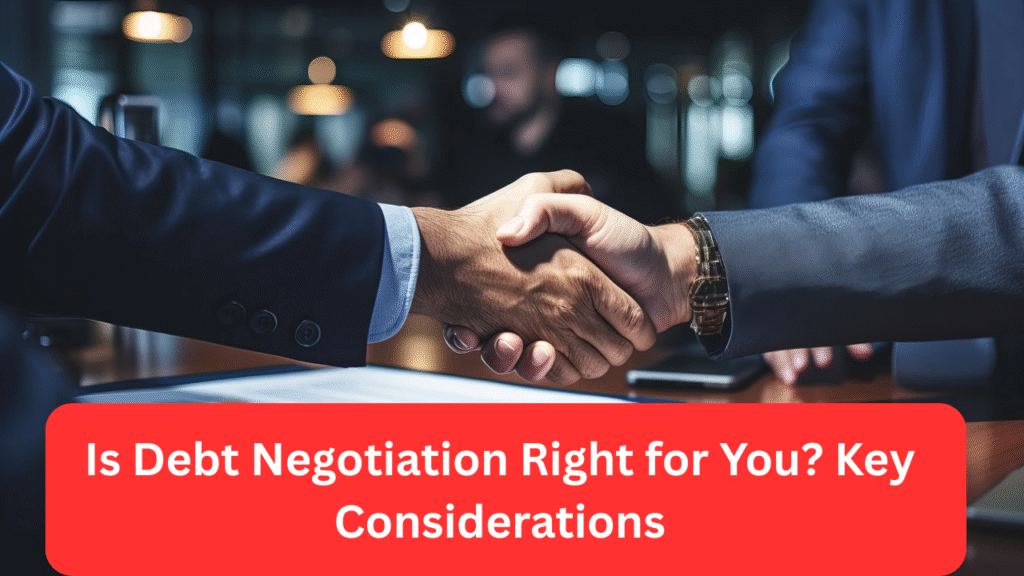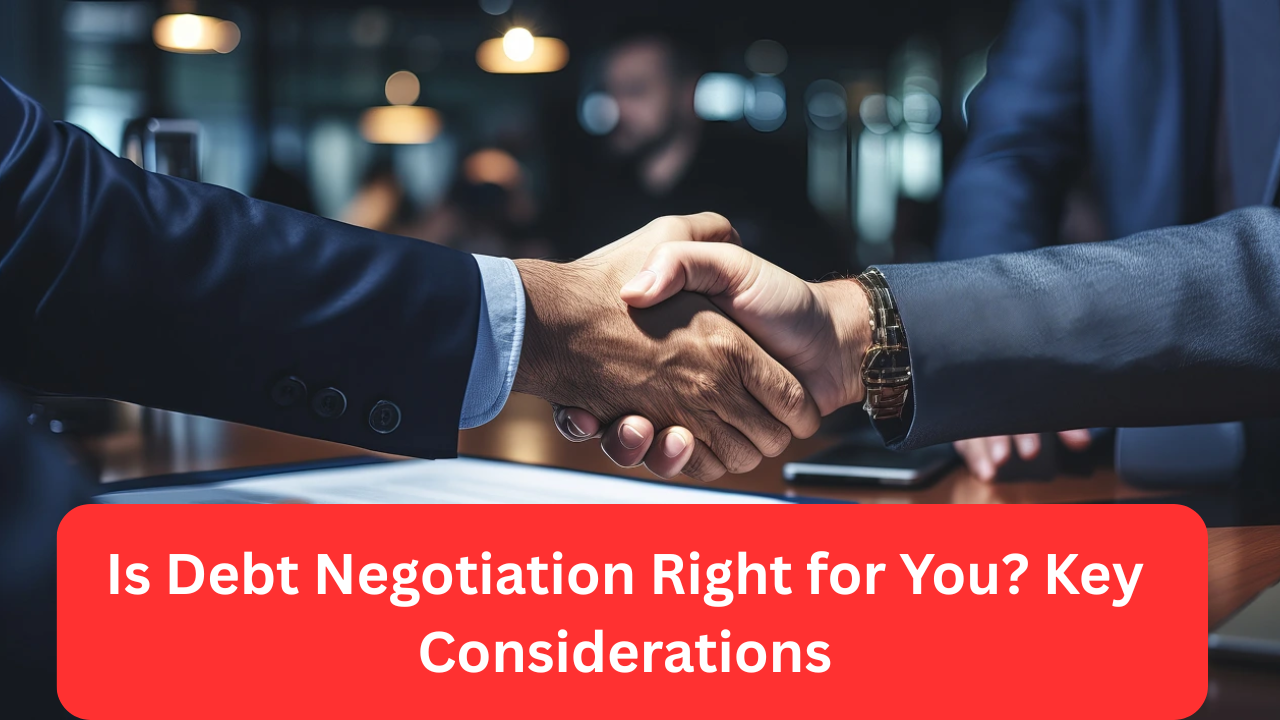
If you’re drowning in unsecured debt—like overdue credit card bills or medical expenses—debt negotiation might seem like a life raft. But is it the right solution for everyone? Debt negotiation can reduce your overall balance, stop creditor harassment, and help you avoid bankruptcy—but it also comes with serious risks.
This article explores key considerations to determine if debt negotiation is right for you, including how it works, its pros and cons, and when to consider alternatives.
What Is Debt Negotiation?
Debt negotiation—also known as debt settlement—is a strategy where you or a third-party negotiator contact creditors to agree on paying less than the total amount owed. The remaining balance is forgiven, but there are costs, credit score implications, and tax consequences to consider.
Debt negotiation typically applies to unsecured debts such as:
- Credit cards
- Personal loans
- Medical bills
- Private student loans (in rare cases)
It does not apply to secured debts like mortgages or auto loans.
How Does Debt Negotiation Work?
The process usually follows these steps:
- Stop Making Payments – You (or the debt negotiation company) stop paying creditors, which may lead to late fees and collections.
- Funds Accumulate in a Settlement Account – Instead of paying creditors, you deposit into a separate account to build a lump sum offer.
- Settlement Offer Is Made – Once enough funds are saved, the negotiator proposes a reduced payment to the creditor.
- Agreement and Payment – If accepted, you pay the agreed amount, and the rest is forgiven.
Overview Table: Is Debt Negotiation Right for You?
| Key Factor | What to Consider |
|---|---|
| Type of Debt | Only unsecured debt is eligible |
| Financial Hardship | Ideal if you’re unable to pay full balances |
| Credit Score Impact | Will likely drop significantly |
| Willingness to Settle in Cash | Requires lump-sum payment or structured savings |
| Time Frame | Can take 2–4 years to fully resolve |
| Tax Consequences | Canceled debt may be considered taxable income |
Pros of Debt Negotiation
Debt negotiation can be a powerful tool—in the right situation. Here are some potential benefits:
| Advantage | Details |
|---|---|
| Reduce total debt owed | Settlements often result in 30–60% debt forgiveness |
| Avoid bankruptcy | Less damaging than Chapter 7 or 13 in many cases |
| Single settlement payment | May simplify your finances |
| Stops creditor harassment | Creditors may pause collections during negotiation |
| Chance to recover financially | Once settled, you can start rebuilding credit |
Major Risks and Drawbacks
Despite the potential for relief, debt negotiation comes with real consequences:
| Disadvantage | Why It Matters |
|---|---|
| Credit score damage | Missed payments and settlements hurt your FICO score |
| Tax implications | Forgiven debt may be treated as taxable income |
| No guarantee of success | Creditors aren’t required to accept offers |
| Fees from settlement companies | May charge 15–25% of the enrolled debt |
| Possible legal action | Some creditors may sue before a deal is made |
Who Should Consider Debt Negotiation?
Debt negotiation may be a good fit if you:
- Have $10,000 or more in unsecured debt
- Can’t keep up with minimum payments
- Are facing collections or lawsuits
- Want to avoid bankruptcy but need serious relief
- Can commit to saving for lump-sum settlements
It’s not ideal for people who:
- Are still managing monthly payments
- Have mostly secured debt
- Want to protect their credit score
- Can qualify for debt consolidation or refinancing
Debt Negotiation vs Other Debt Relief Options
| Option | Best For | Credit Impact | Key Feature |
|---|---|---|---|
| Debt Negotiation | Severely behind on unsecured debt | Severe short-term drop | Pay less than what’s owed |
| Debt Management | Struggling with interest rates | Minimal impact | Consolidates payments via credit counseling |
| Debt Consolidation | Multiple high-interest loans | Can improve score | Combines debts into one loan |
| Bankruptcy | No ability to repay | Major long-term impact | Legal process to discharge debt |
Questions to Ask Before Choosing Debt Negotiation
- Are you willing to risk your credit score?
- Can you handle potential collection calls or lawsuits?
- Do you understand the tax consequences?
- Can you realistically save up a settlement amount?
- Have you explored safer alternatives?
If you’re unsure, consider speaking with a nonprofit credit counselor first—they can give unbiased advice and help you compare all available options.
Summary Table: Weighing the Pros and Cons
| Consideration | Benefit or Risk? | Importance Level |
|---|---|---|
| Reduce total debt owed | Benefit | High |
| Damage to credit score | Risk | High |
| Taxable forgiven debt | Risk | Medium |
| Avoiding bankruptcy | Benefit | High |
| Settlement company fees | Risk | Medium |
| Timeline to resolution | Depends (2–4 years) | Medium |
3 Best One-Line FAQs
Q: Can I negotiate debt on my own without a company?
A: Yes, many creditors will work directly with individuals to settle debt without third-party fees.
Q: Will debt negotiation stop collection calls immediately?
A: Not always—calls may continue until a settlement is reached or formal agreement is made.
Q: Is debt negotiation better than bankruptcy?
A: It depends—negotiation is less severe but doesn’t guarantee total debt elimination like bankruptcy.

